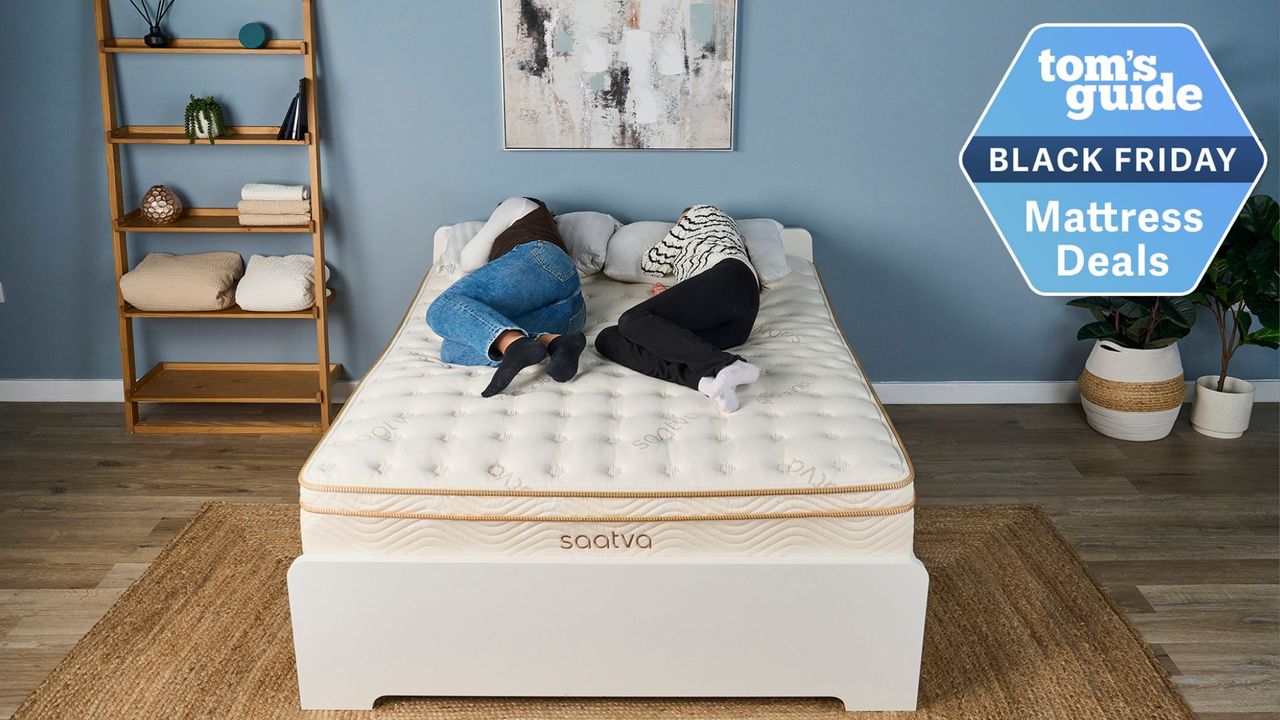
Need a new mattress? Now is absolutely the best time to be shopping for it. This year's Black Friday mattress deals are in full flow, which means that you can treat yourself to one of the best mattresses of the year at the lowest prices.
That's great news, assuming you want to save money on a new bed, but if you rush into things and bag the first bargain you see, you might end up making a costly mistake. You could find yourself with a mattress that feels great for you but not for your partner, or you might get lumbered with a cheap bed that doesn't offer an all-important sleep trial.
In fact, if your old mattress is starting to show its age, you could save money by instead shopping the Black Friday mattress topper sales to get a comfort boost that'll last you a good few years.
We know all the ins and outs of the mattress business here at Tom's Guide, and to save you making any rookie mistakes in this year's mattress sales, we’re sharing our expert tips for navigating the overwhelming amount of mattress discounts flying around online. Here's what you need to know...
Our beginners guide to the Black Friday mattress sales
1. Know your sleep position and sleep needs
The one thing you need to understand before hitting the Black Friday mattress sales is this: your own sleep needs. The best mattresses for side sleepers are often softer, providing plenty of cushioning for your arms, shoulder, hips and knees.
If you sleep on your back or on your stomach, you'll do better with a firmer mattress that keeps your spine nice and straight while you sleep.
Some people, however, are combination sleepers who change position throughout the night, so they'll need a mattress somewhere in the middle that can both cushion their joints and provide all-over support, and also stop their movement disturbing their partners. And what ever your sleeping position, you should also factor in your weight: lighter sleepers should skew softer, while heavier people will want more firmness for added support.
You're going to see lots of terms like memory foam, edge support and motion isolation when shopping for a mattress, and to find your perfect bed you need to know what they mean and why they matter. We’ve produced a mattress jargon buster to help, but here’s a quick breakdown of different mattress types and terms – and which sleepers they benefit:
Motion Isolation: Good motion isolation, or no motion transfer, means that the mattress materials limit the movement and disturbance that can be felt on either side of the mattress – particularly important if you're looking for the best mattress for couples.
Moisture wicking and temperature regulation: These terms indicated that a mattress keeps moisture away and won’t trap heat. In short, the mattress will stay cool, dry and fresh, which will matter to anyone who overheats or suffers from night sweats. You'll find specialist temperature regulation tech in this year's best cooling mattresses.
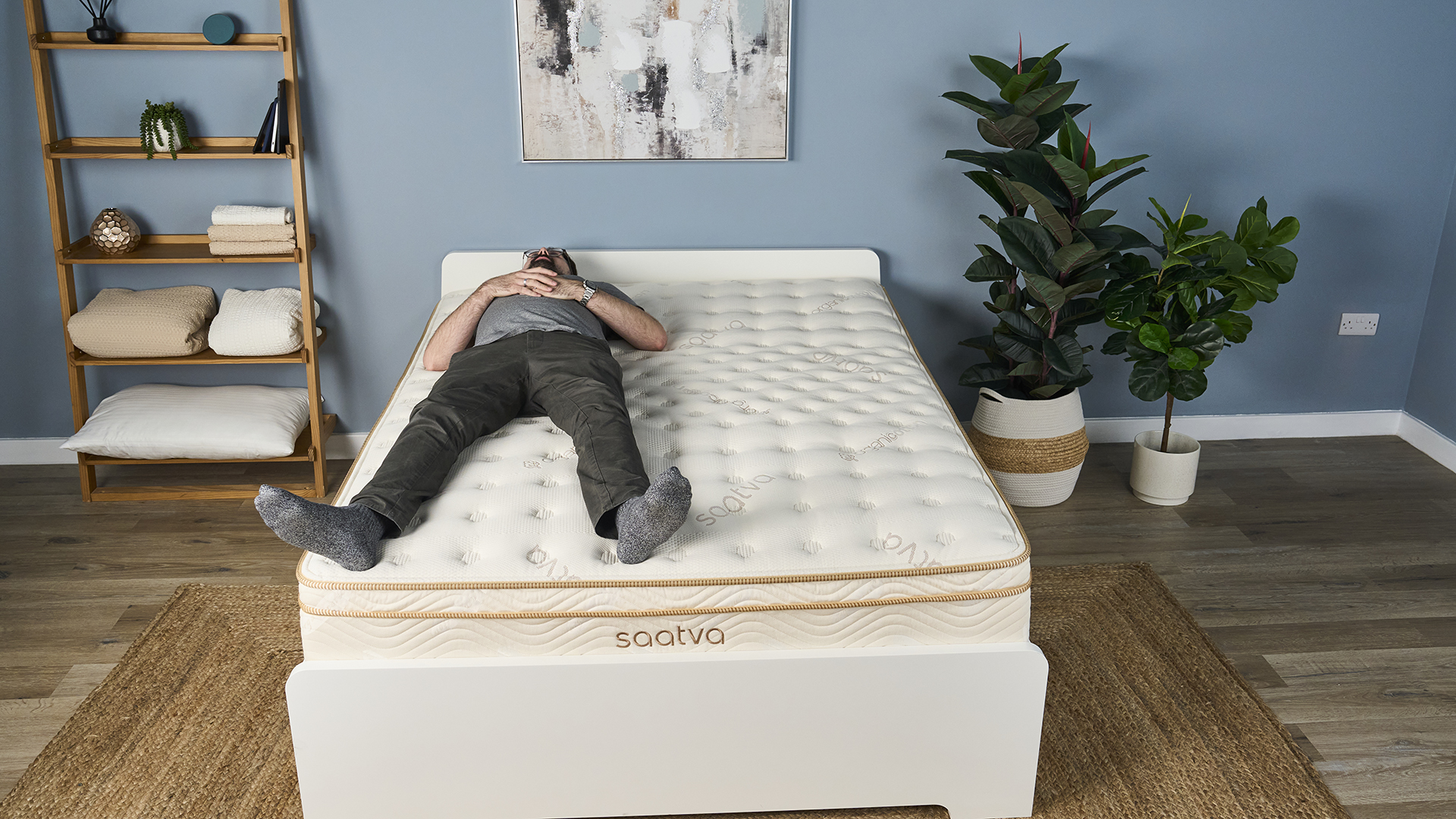
Edge support: If a mattress has good edge support, it means the edges won't compress when lie close to the sides or if you sit on the edge of the bed while getting up or to get dressed in the morning.
Memory Foam: Soft and contouring, the best memory foam mattresses are excellent for lightweight to medium weight sleepers and those who sleep on their side. Memory foam also offers great motion isolation – particularly important if you or your partner is a restless sleeper.
Hybrid: Hybrid mattress are made with a combination of springs and foam and are generally suitable for all kinds of sleepers. They're very popular, but they tend to be quite expensive compared with beds made with just foam or springs. Our guide to the best hybrid mattresses of the year will walk you through all the top-rated options and what to look for when buying one.
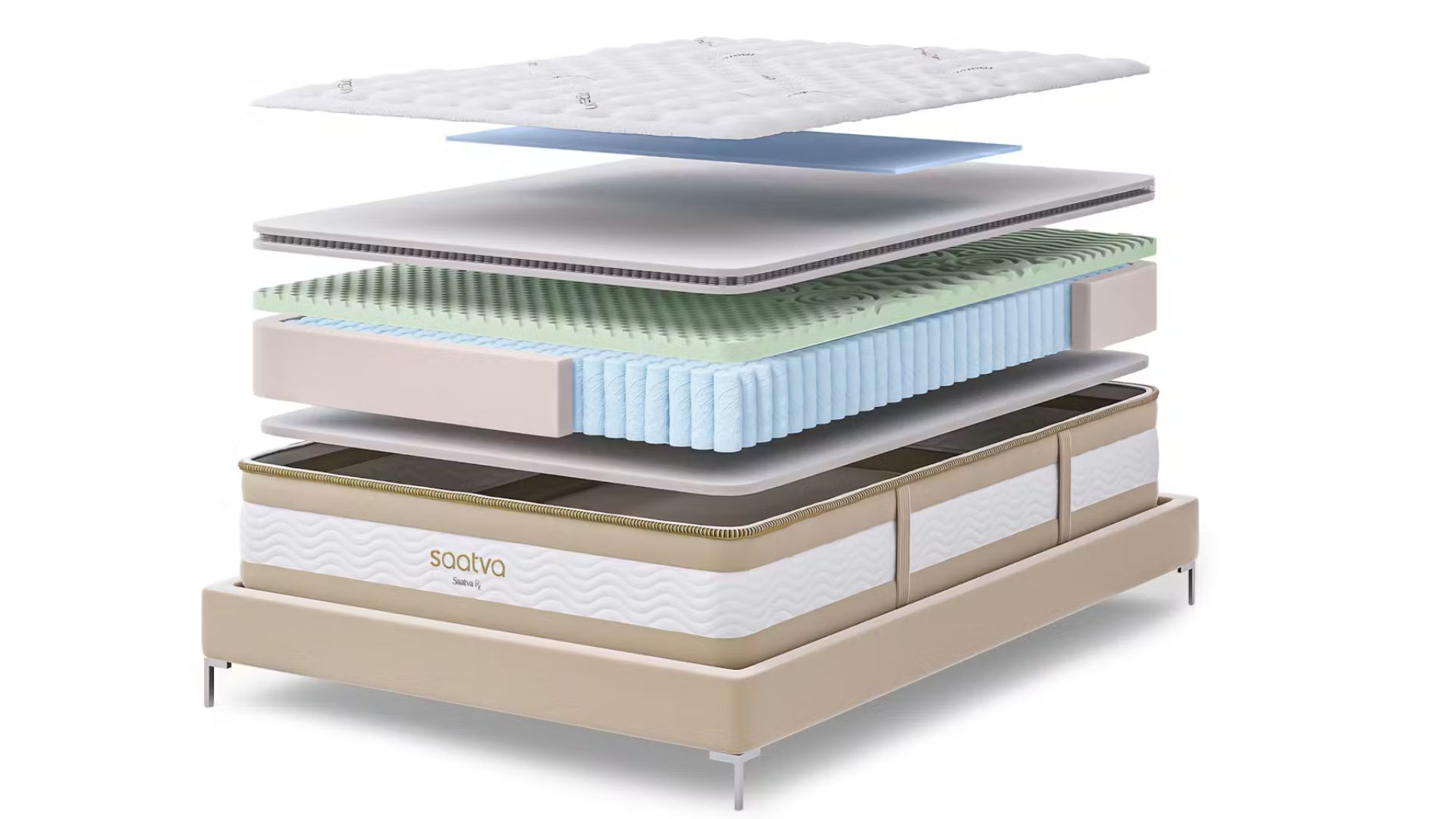
Innerspring: Made mostly with coils, and often with a cushioned top layer, these are the most affordable mattresses. Better airflow, bounce and firmness means they’re perfect for hot sleepers and those who sleep on their front or back. They have a shorter lifespan, though, and have poor motion isolation compared to all-foam options. Read our Saatva Classic mattress review for our look at the best innerspring mattress in the world right now.
Latex: The best organic mattresses are normally made with natural latex, which is more breathable than memory foam and won't trap heat. Latex beds also have good motion isolation and a much longer lifespan than the average eight years most mattresses last for. Latex mattresses are generally suitable for all types of sleepers (particularly heavyweight and stomach sleepers), but they are expensive.
2. Only buy a mattress if it has a good trial period
It takes time to get used to a new mattress, which is why nearly all sleep brands offer extensive mattress trials to help you make sure that you've made the right buying decision. 30 nights is the minimum recommended time to fully adjust to a new bed, and some mattress brands don’t allow customers to return their mattress until they’ve had it for at least 30 days.
Brands such as Saatva, Nectar and DreamCloud will give you a whole year to try out your mattress, but that's a little over the top. Realistically you'll need 90 days to be absolutely certain whether a mattress is right for you, so you should swerve any brand that doesn't give you as long as that.
Some discounted mattresses don’t offer a sleep trial (especially those marked as ‘Final Sale’), and some retailers, such as Costco, don’t offer sleep trials at all. If a sleep trial is offered, but it lasts less than 30 nights, walk away.
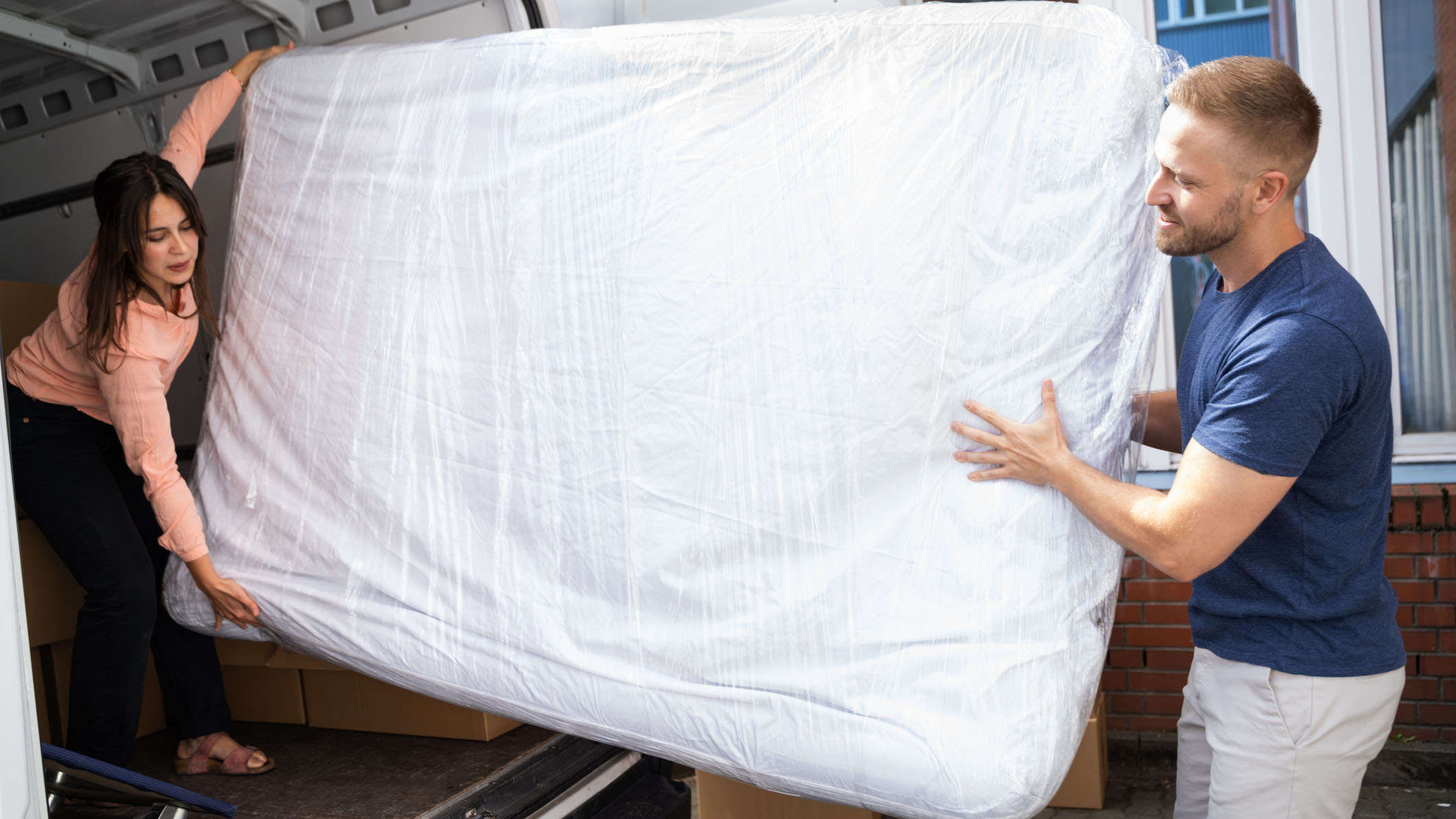
3. Check the returns policy and warranty
Before you pull the trigger on your new mattress purchase, you should know how well you're covered by the mattress warranty if something goes wrong with it, and how long the warranty lasts for. A warranty covers you against manufacturing defects such as sagging, broken coils, and unraveled seams, and the longer the warranty lasts, the more confident you can feel about the quality of your mattress.
As we explain in our feature on how to clean a mattress, a bed that’s been properly cared for should last an average of 8-10 years and many brands reflect this by offering a 10-year warranty. However, many of the best mattresses in a box come with warranties up to 25 years and some such as the DreamCloud and Nectar, boast lifetime warranties.
Always remember to check the returns policy before you buy too. Remember, when buying a mattress from sites such as Amazon, the returns policies can be a lot different to the returns policy of the brand’s official website.
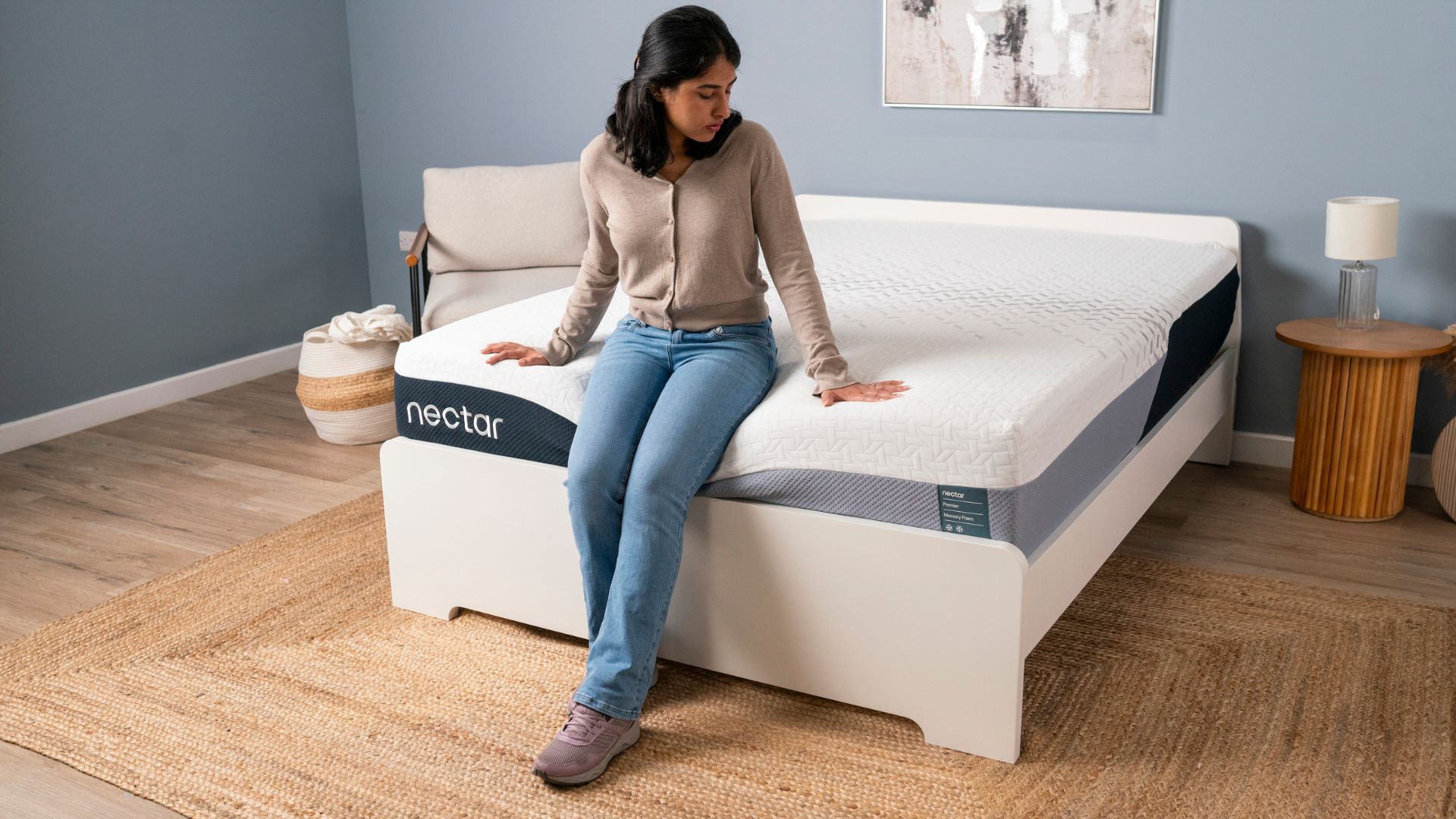
4. Don’t get swayed by the discount alone
It’s easy to become dazzled by a huge discount or a ridiculously low price and forget to read the fine print. While there are some great affordable mattresses out there, some will leave you remembering the old adage: you get what you pay for.
Make sure you check whether the features suit your body type and sleep style, and remember to check returns policies, warranties, and even the materials. For example, a lot of cheap mattresses use fiberglass as a flame retardant, so check if this concerns you. Our guide to how to tell if there’s fiberglass in a mattress discusses this in detail.
That being said, an expensive mattress doesn’t automatically mean it’s perfect for you. In fact, some of the best cheap mattresses on the market outperform their price tag.
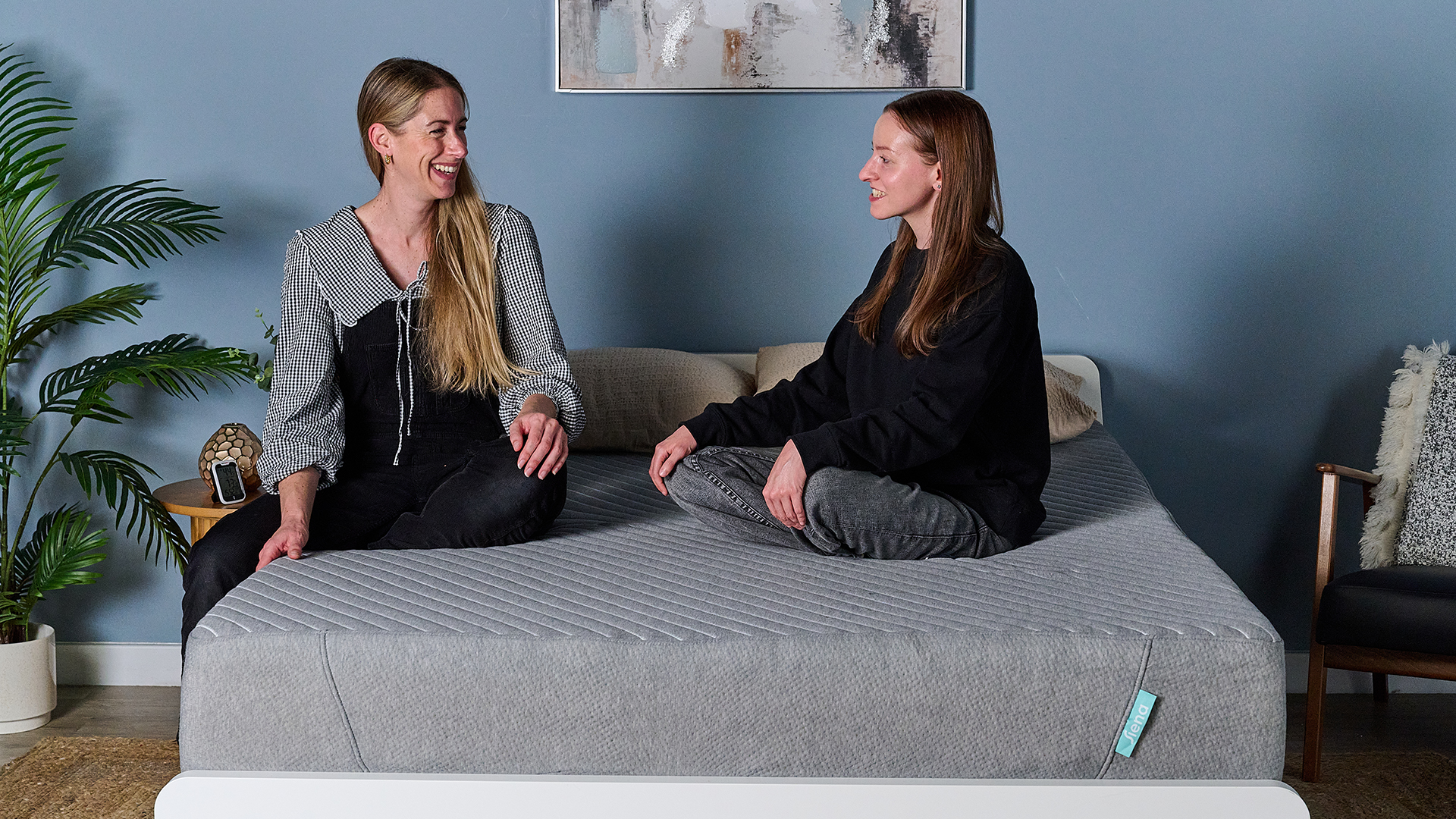
5. Make sure the firmness suits the both of you
We've already talked you through how different mattresses firmness levels suit different sleeping positions and body types, but things get a little more complicated when you share a bed, and you may have to compromise to find a mattress that suits the both of you.
For example, if you're a side sleeper weighing under 130lbs, you'll benefit from a mattress that’s soft and contouring. However, if your partner is a stomach sleeper with a heavier build, they’ll likely need a firmer option.
To save arguments, and as an excellent compromise, we recommend buying a medium-firm mattress. This will suit a diverse range of sleepers, providing a good middle ground for couples who have different sleeping positions and body types. You may also want to consider adjustable air beds, which have firmness settings for customization, or a split king mattress, which pushes together two separate twin XL mattresses.







